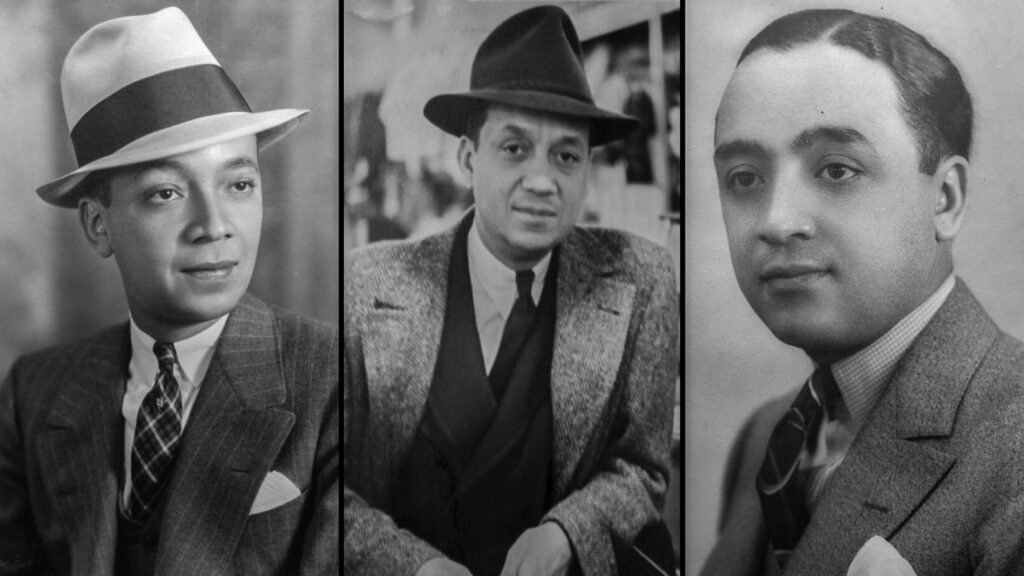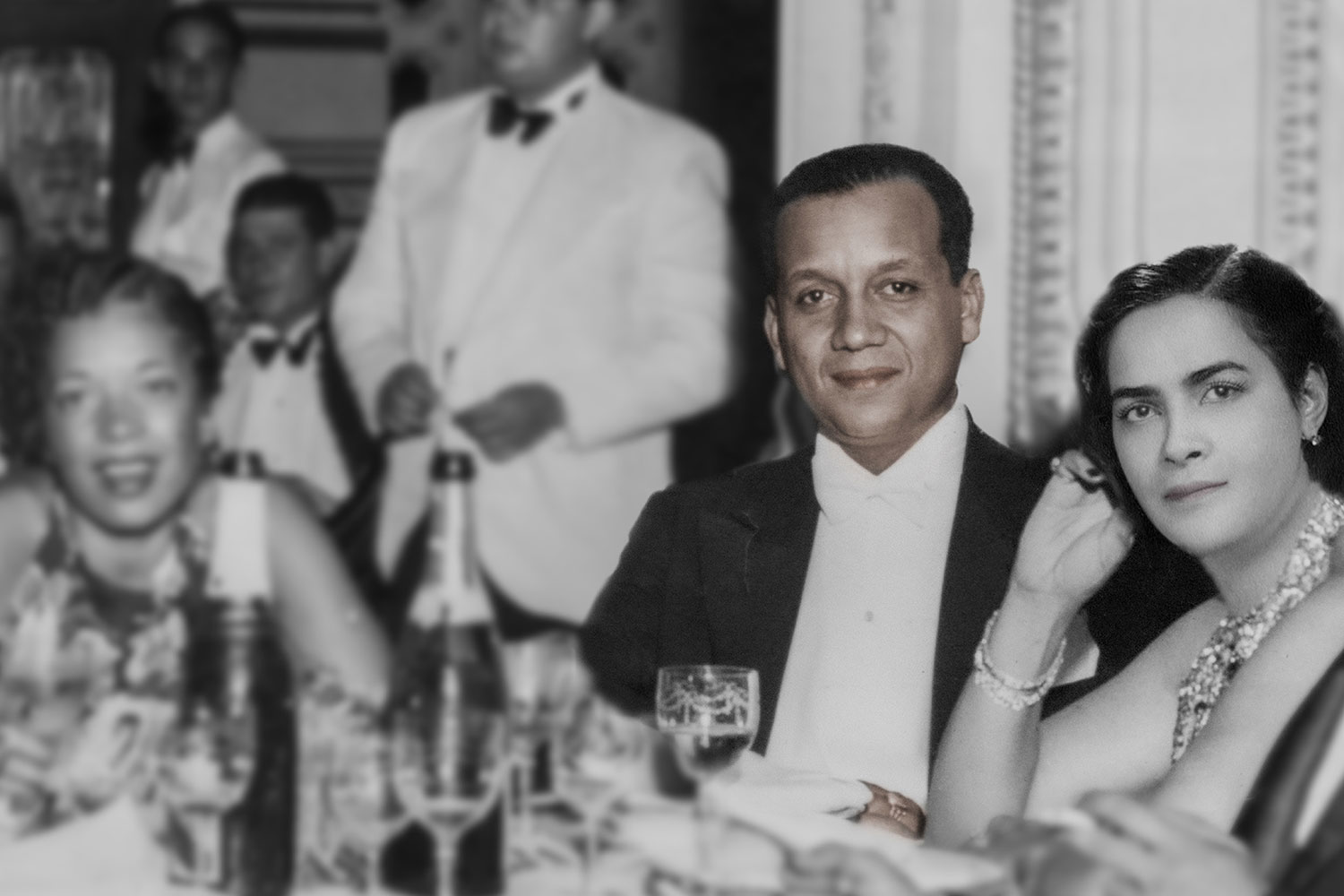Two years ago this October, a French filmmaker won the Chicago Award at the Chicago International Film Festival. Although she lives in Paris and English is her third language, director Harriet Marin Jones won the prize for her first documentary: King of Kings: Chasing Edward Jones, a thoroughly Chicago story about her grandfather, whose amazing biography had been largely erased — both from history books and her family’s collective knowledge.
Having toured the festival circuit for the past 23 months, winning more than two dozen awards in film fests from Los Angeles to New York to Monaco, the documentary made its theatrical premiere in Hyde Park this past weekend. The one-week run (through September 26) at Harper Court Theater, along with another weeklong run in L.A., qualifies King of Kings to be considered for an Academy Award nomination. On November 19, the doc will be available on video-on-demand and DVD.
The director spent a decade researching her family’s history, anchored by her grandfather, Edward Jones, the so-called Policy King who became a multimillionaire in the 1930s and ’40s. In the early 20th century, the term “policy” referred to an illegal numbers racket, which Jones ran along with his two brothers and several other Black individuals. Eventually they ran afoul of both the Chicago Mafia, who kidnapped Jones, and the federal government, who imprisoned him. By the 1970s, Illinois officials, eager for a cut of the revenue, codified the game as the state lottery.
As the film reveals, Jones lived a fascinating life. After moving to Chicago with his family during the Great Migration, he initially studied medicine at Northwestern University, but the 1919 race riots, also known as Red Summer, played a part in altering his career trajectory. His business savvy led him into policy, and his incredible success put him into an orbit that intersected with a variety of prominent 20th century figures, from Josephine Baker and Duke Ellington to Al Capone and Sam Giancana.
One other influential figure who knew Jones is still alive today: the legendary producer Quincy Jones — no relation to the Jones family profiled in the film, but a peer of Edward Jones’s daughter Harriet. (Director Harriet Marin Jones is named after her mother.) An executive producer of the film, Quincy Jones also appears on camera, explaining the beneficent side of the Policy Kings, who helped build Bronzeville into a thriving community. They employed thousands, and leveraged their underground economy to fund new businesses and college scholarships. As Quincy Jones notes, “I would have to call them the Robin Hoods of Chicago during the Depression. They took care of their people.”
Marin Jones chatted with Chicago magazine upon arriving in town last week for her film’s Harper Court Theater premiere.
You grew up in Europe but attended college in the states, starting your undergrad career in Chicago. What brought you here?
I was born in Mexico and, at 6 months, we moved to Madrid, where my father is from. Of course my mother is from Chicago, so I moved to the U.S. when I was 17 years old. I studied at Loyola University and moved in with my grandmother, who used to live at Lake Point Tower. I spent a whole year living in Chicago, which was amazing. I wanted to study film, and Loyola had a small department of film, which is why I then moved to Washington, to American U., because they had a big film department. But Chicago is where I met Nick Ford, [a now-retired judge] who you see in the film. It’s actually Nick who told me the story of my family. I had no idea because it had been kept quiet — my mother and my grandmother barely talked about it. He’s the one who first told me the story of Edward Jones.
What did you learn about your grandfather as a child?
My mom would talk about her father, who was her hero, but the only thing she said was what an amazing man he was. We had no idea about policy; we had no idea he had been kidnapped; we had no idea he had gone to jail. She said nothing. I started digging into my family story, trying to understand why my mother was so secretive about everything. Was she ashamed? What was going on? If you don’t know the real story, you have a mystery surrounding you. It’s like you have ghosts in the closet.
One great element about King of Kings is your willingness to present contradictory versions of your family’s biography. In particular, we hear your mother say, “Oh no, he was never violent. He was not a gangster.” But then you cut immediately to other people, including Quincy Jones, who tell us: “Of course Edward Jones was a gangster who carried a gun for protection.”
It was extremely important to me to tell the truth, no matter what the truth was. That means the amazing side — how he helped the community — but also the dark side. So yes, of course he was an outlaw. I mean, the game was illegal. But there’s outlaw and there’s outlaw. Yes, he was considered a gangster, and yes, there was income-tax evasion. But he never killed anyone. For him to become this powerful in the ’30s and ’40s, you cannot be just a saint. I thought it was really funny to show my mother’s side, and she was in complete denial.
What was your mother’s reaction when she saw the film?
She didn’t say anything for two days. It was too much information and too emotional for her. Now she adores the film. She’s so proud of it. Doing this film actually gives my grandfather and the Policy Kings their right place in history.
You know, to this day, there is nothing on Policy Kings in the Chicago History Museum. You have tons about Al Capone and blah blah blah, and on the Red Summer riots, but nothing on policy. It’s so important to also show that African-Americans were behind what became the state lottery. That’s really information that the whole world should have.
Another fascinating element in King of Kings, at least for Chicago viewers, is the stunning archival footage of our city, particularly of the Black Metropolis. How did you get all those beautiful images?
Actually, I will be very transparent: Most of the money went into archival images and into the music. When I chose all these amazing images, well, I had no idea it was going to cost so much. But it was so important for me to have all these images of the past. I wanted to show what Bronzeville looks like today, and how thriving and beautiful it was in the ’30s and ’40s. I worked with Chicago-based archivist Patricia Lofthouse, who sent me about 70 hours of footage. From those 70 hours, I chose about 40 minutes for the film — the most beautiful images I could get. Patricia is amazing, a walking encyclopedia. I couldn’t have done this film without her.

Throughout King of Kings, to match the archival footage in black and white, you repeat that grayscale palette in animated sequences. Then you’ve added an artistic touch by using pops of red. That calls to mind “blood” as in family — a shared DNA connection — and obviously also connoting violence. What was your thinking regarding this visual aesthetic?
Visuals are so very important to me. I come from the world of fiction; this is my first documentary, and there was no way I was just going to do a film with just people talking. I really wanted to have something strong visually. There are 11 sequences in the film where I had no [archival] footage or images. That’s why I used animated sequences. I don’t want people to get bored.
Regarding the red, I had the idea that it would be the visual thread throughout the film. Actually it’s the drop of blood, which not only represents the Jones bloodline but also the one-drop rule. I mean, my grandparents, to a lot of people, they could pass for white, but they were Black. There was a time when if you had one drop of African-American blood, you were considered Black. So that red blood also symbolizes the discrimination that comes from Jim Crow laws. The fact that Black Americans didn’t have access to most jobs, they couldn’t vote without threats — it was really horrendous.
In the film, Quincy Jones states your theme: “It is so important to know and understand history, because if you know where you come from, it helps you get where you’re going.” How has your perspective on your family and on the world changed since you began this project?
It’s an American family story that touches the universal. It’s a small story and a big story. Has it changed my life? To see how the public have received the film in these festivals — the standing ovations, and how people would come and tell me, “Thanks to you, I’ve learned so much.”
I had no idea how this was going to be received. Actually I didn’t get any grants. I didn’t get a distributor at the beginning. Everybody said no. In France, they would tell me, “This is an American topic. We’re not touching it.” In the U.S., for whatever reason, no one would go for it. Really, no one believed in the subject. When the film was finished, someone told me, “If you get into one festival, that would be amazing.” You know, I did 32 festivals and won 27 awards, mostly in “white” festivals — if I can say that, in quotations. Now I have received four offers from American distributors and three from France.
And now people tell me, “Oh my god, we never thought it was this terrible.” Listen, this is what happened. I’m not hysterical; I’m not angry. I’m just sharing the facts. Like Quincy says, it is so important that people know what happened. I really feel that, in some parts of the U.S., they’re trying to rewrite history. Let’s not forget, so history doesn’t repeat itself.



